Related Research Articles
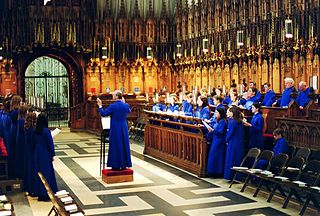
A choir is a musical ensemble of singers. Choral music, in turn, is the music written specifically for such an ensemble to perform or in other words is the music performed by the ensemble. Choirs may perform music from the classical music repertoire, which spans from the medieval era to the present, or popular music repertoire. Most choirs are led by a conductor, who leads the performances with arm, hand, and facial gestures.

The Singing Revolution was a series of events from 1987 to 1991 that led to the restoration of independence of the three Soviet-occupied Baltic countries of Estonia, Latvia, and Lithuania at the end of the Cold War. The term was coined by an Estonian activist and artist, Heinz Valk, in an article published a week after the 10–11 June 1988 spontaneous mass evening singing demonstrations at the Tallinn Song Festival Grounds.
The recorded history of music in Estonia dates back as far as the 12th century.

The Alexandrov Ensemble is an official army choir of the Russian armed forces. Founded during the Soviet era, the ensemble consists of a male choir, an orchestra, and a dance ensemble.
Veronika Portsmuth is an Estonian conductor and singer.

Estonian TV Girls' Choir is a choir established by Estonian Television. It grew out of the Children's Television Music Studio, which was founded in 1990. Today the choir comprises 30 singers aged from 14 to 20.

Cantores Minores is a choir of the Helsinki Cathedral, and Finland's oldest and most successful boys' choir. The patron of the choir is the President of Finland. The choir consists of around three hundred 4- to 25-year-old boys and young men.

A/S Merilaid & Co. was an Estonian shipping company. The firm was founded in Tallinn, Estonia on 18 February 1930. There were seven founding shareholders, most of whom were related by blood or marriage as descendants of Peeter All. Of the 7 founders, 6 were ship captains and 5 had worked in the Far East, in Vladivostok and/or Shanghai, for many years, and had avoided the turmoil of the Bolshevik or Communist Revolution, prior to returning home to a free Estonia. Estonia had been part of the Russian Empire since 1721 when Russia defeated Sweden in the Great Northern War. After World War I, and concurrent with the Russian Civil War, Estonia defeated Russia in the 1918–1920 War of Independence and became an autonomous nation after almost 200 years of Russian rule.

The Lithuanian Song and Dance Festival, colloquially known also as the Song Celebration is a Lithuanian massive traditional song and dance festival. It takes place roughly every four years. The event has been a national celebration throughout the interwar and upon Lithuania regaining its independence in 1990. The main event is traditionally hosted at Vingis Park in Vilnius.
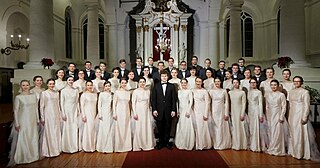
Kamēr... is a Latvian mixed youth choir based in Riga, Latvia, founded in 1990 by Māris Sirmais. A winner of multiple national and international prizes and awards, including the European Grand Prix for Choral Singing in 2004, 2013 and 2019, the choir performs in various events both in Latvia and worldwide, and collaborates with renowned musicians and orchestras.
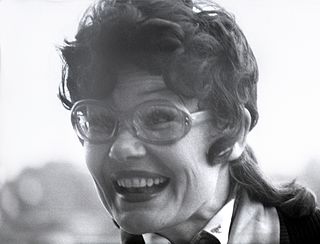
Heli Lääts was an Estonian singer (mezzo-soprano) whose career began in the mid-1950s. Lääts predominantly performed estrada, chamber, pop, polka, and jazz music.

Risto Joost is an Estonian conductor and operatic countertenor.
Paul Mägi is an Estonian conductor in concert and opera and is also an academic teacher and violinist. He has commissioned works for the Estonian National Opera.
Tallinn Chamber Orchestra is a chamber orchestra located in Tallinn, the capital city of Estonia.
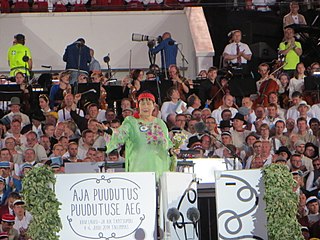
Tiia-Ester Loitme is an Estonian conductor.

Ellerhein is an Estonian girl's choir.
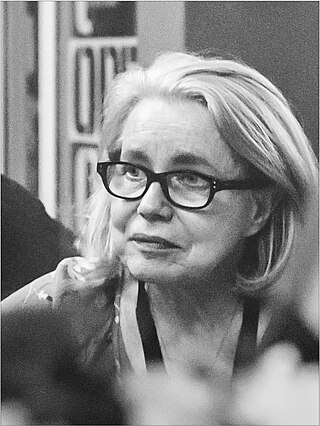
Katrin Laur is an author, film director and professor. She lives in Estonia and Germany.
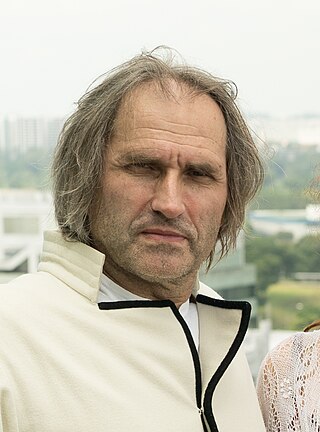
Aarne Saluveer is an Estonian conductor and music pedagogue. He is primarily known by its activity with children's music and children's choirs.

Ants Soots is an Estonian conductor.
Ottniell Jürissaar was an Estonian poet, composer, and conductor.
References
- ↑ Estonian Music Information Centre: Ester Mägi
- 1 2 "25. aprill - www.virumaa.ee". www.virumaa.ee. Retrieved 23 January 2022.
- ↑ Eesti Kontsert: Abrahami järglased